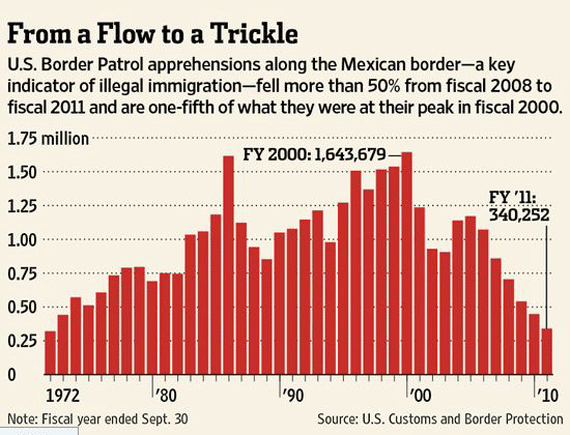Friday File: More GOP Iran Tough Talk
More on:

Above the Fold. Iran was the obligatory foreign policy topic at last night’s GOP debate and the conversation didn’t add much to what we already knew. A heavy dose of the media coverage today is focusing on how Ron Paul supposedly damaged himself by insisting that the biggest danger Iran posed to America was if the next president “overreacted.” This coverage was fairly predictable. The news media love the theater of political debates far more than the substance, and Michele Bachmann saying that she had “never heard a more dangerous answer” than Paul’s on Iran gave journalists the drama they crave. But the real story of the night is that the Fox News moderators didn’t ask the candidates pounding the table whether they thought that a military strike on Iran’s nuclear facilities would be sufficient to stop Iran’s nuclear program. Talk of so-called limited strikes is seductive because it suggests that the United States can achieve a lot while risking little. But Newt Gingrich is on record dismissing the idea of a limited strike as a “fantasy” that would only create “a gigantic mess.” Some of Mitt Romney’s comments suggest that he also isn’t impressed with the odds that a limited strike would succeed. Do the other candidates agree? And if so, does that mean that they are running on a platform of possibly going to war with Iran? I’d bet that is a question that most voters would like to hear answered.
CFR Event of the Week. Scott G. Borgerson, senior fellow at the Institute for Global Maritime Studies, Paula J. Dobriansky, senior vice president and global head of government and regulatory affairs at Thomson Reuters, and Frank Sesno, director of the School of Media and Public Affairs at George Washington University, came to CFR to discuss the economic, environmental, and security consequences of a changing Arctic region and its importance for the United States. To learn more, watch the video, or download the audio.
Click here to view this video on YouTube.
Read of the Week. “In September, an amiable Dutchman stepped up to the podium at a scientific meeting convened on the island of Malta and announced that he had created a form of influenza that could well be the deadliest contagious disease humanity has ever faced.” That’s the opening sentence of Laurie Garrett’s gripping new article on bioterrorism. Just how lethal might this manufactured virus be? By one calculation it killed 75 percent of the mammals that were exposed to it. Does the virus pass easily from one host to the next? Yes, influenza (flu) is highly communicable. Is it hard to produce the extra-lethal version of the influenza virus? Apparently not. The Dutch scientist didn’t use top-secret techniques, and now “eager graduate students in virology departments from Boston to Bangkok have convened journal-review debates reckoning exactly how these viral Frankenstein efforts were carried out.” In all, Garrett’s article is a chilling look at how technological advances in biology may soon enable a modestly trained biologist to wreak unimaginable harm.
Blog Post of the Week. Earlier this week CFR released a new report on U.S. relations with Saudi Arabia, entitled Saudi Arabia in the New Middle East. The report, which was written by F. Gregory Gause III, a professor at the University of Vermont and the country’s leading Saudi expert, argues that Washington needs to focus its diplomacy on a few crucial priorities: maintaining regional security, dismantling terrorist networks, and preventing the proliferation of nuclear weapons. My colleague, Elliott Abrams, likes the report for the most part. But he dissents on one critical point: that Washington should shy away from pushing difficult issues like human rights and domestic political reform because the chances of persuading Riyadh to change its ways are low. And that dissent goes to the heart of the debate over how to deal with Riyadh.
Poll Question of the Week. The United States formally ended the Iraq War yesterday. Aside from the few troops that will stay behind to safeguard the U.S. embassy, all U.S. forces will leave Iraq by the end of the month. The Republican presidential candidates have criticized the White House for failing to strike a deal with Baghdad that would have allowed the United States to maintain a sizable military presence in Iraq. Has the American public been persuaded by this criticism? Apparently not. An AP-GFK poll done this month found that public approval of Obama’s handling of Iraq stands at 55 percent, up four percentage points from when the question was last asked back in October.
Chart of the Week. The GOP presidential candidates have been insisting that they will do what President Obama has failed to do and secure America’s southern border. So what has been happening in recent years with the flow of people entering the United States illegally from Mexico? It’s hard to answer this question because precise statistics don’t exist; people sneaking into the country don’t check in as they cross the border. So experts look instead at trends in the number of people that the U.S. Border Patrol catches crossing the border illegally. And here the numbers might surprise many Americans. The numbers have been trending down for much of the past decade. Given the amount of money that has been spent on border security in recent years and the political pressure on President George W. Bush and then on President Obama to get tough on illegal immigration, it’s highly unlikely that the steep decline is because the Border Patrol has become substantially less capable of doing its job. There instead looks to have been a real decline in border crossings. Some of that decline owes to better border enforcement. Some of it owes to better economic prospects in Mexico that keep potential immigrants at home. And some of it owes to worse job prospects north of the border that dissuade immigrants from coming. The exact balance among these three factors is a matter of conjecture.
 Chart source: Wall Street Journal.
Chart source: Wall Street Journal.
Too Good Not to Note. Michael Levi explains how the upbeat news coverage of the Durban climate change meetings got it wrong. Adam Segal muses on the recent spate of U.S. government complaints about Chinese cyber espionage. Ed Husain asks whether we should fear the Muslim Brotherhood. Charles Kupchan explores the four pillars of the future and what they mean for grand strategy. David Axe examines how much the F-22 Raptor has cost the American taxpayer. Walter Pincus looks at what has happened since President Obama ordered one hundred combat-equipped U.S. troops to head to Central Africa to capture or kill the leadership of the Lord’s Resistance Army. Jack Goldsmith observes that the War Powers Resolution’s sixty-day clock has already run out or will soon run out on the central Africa operation. Nate Silver says that Newt Gingrich’s momentum has slowed and may even be eroding. Scott Clement asks whether Obama is vulnerable on foreign policy.
Perils of Prediction. "There’s as much chance of repealing the 18th amendment prohibition of alcohol as there is for a hummingbird to fly to the Planet Mars with the Washington Monument tied to its tail." Sen. Morris Sheppard (D-TX), author of the 18th amendment, September 1930. Prohibition was repealed in 1933 with the passage of the 21st Amendment. Millions of Americans say “thank goodness” Senator Sheppard got it wrong.
Quote to Ponder. “Democracies die behind closed doors.” Judge Damon J. Keith, Detroit Free Press v. Ashcroft 303 F.3d 681 (August 26, 2002)
A Reason to Smile. A twenty-three day break from GOP presidential debates.
More on:
 Online Store
Online Store